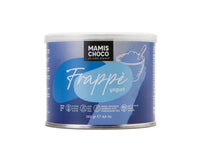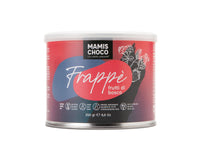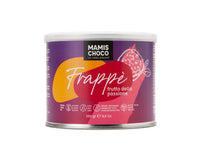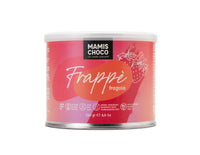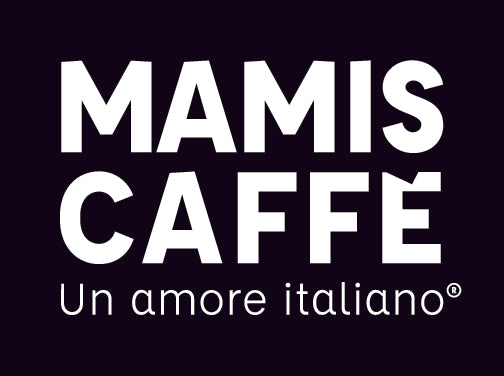
You've probably heard of acrylamide before. The substance forms when frying French fries, for example, but also when roasting coffee. But don't worry: You can continue to enjoy your favorite beverage without worry, even several cups a day. Find out why this is the case and which coffee varieties have reduced acrylamide levels to a minimum here.
Why acrylamide is unavoidable in coffee
Coffee enjoyment is a feast for the senses: that scent of freshly ground beans. The unfolding of the flavor on the tongue after the first sip. These delicious aromas are only possible through the roasting of the coffee beans, or more precisely, the so-called Maillard reaction. In this process, amino acids and sugars are converted into new chemical compounds under the influence of heat. These compounds determine the color and aroma of the finished roasted coffee bean. However, this process also produces acrylamide, a substance considered potentially harmful to health.
If you're wondering whether you'll have to give up your beloved coffee now, we can reassure you: No, you don't. Because even though coffee can't be completely free of acrylamide, the substance is present only in very small amounts.
What is acrylamide?
Acrylamide is always formed when we bake, fry, deep-fry, or roast something, for example, when making French fries, chips, cookies, or crispbread. It is formed from a reaction between sugar and the protein building block asparagine at temperatures above 120 degrees Celsius. Above 180 degrees Celsius, acrylamide formation in food increases dramatically. In contrast to roasting and frying, boiling and steaming produce little to no acrylamide, according to current research.
In animal experiments, the substance has been shown to be carcinogenic and mutagenic. However, there is still no definitive information on its effects in humans. Regardless, minimizing acrylamide exposure is considered preventative health protection.
Consumption of roasted coffee is safe with regard to acrylamide
According to a spokesperson for the Federal Institute for Risk Assessment (BfR), consuming several cups of coffee a day is " not a concern ." And aside from the infamous acrylamide, coffee has a number of properties that make it a healthy beverage in many ways.
To be absolutely sure and to protect consumers proactively, the EU established stricter production guidelines and new limits for acrylamide in food in 2018. These are the current EU limits for acrylamide in coffee:
-
Roasted coffee: 400 micrograms per kilogram
-
Instant coffee: 850 micrograms/kg
-
Grain-based coffee substitutes: 500 micrograms/kg
-
Chicory coffee substitute: 4000 micrograms/kg
These values are regularly reviewed by the EU and adjusted if necessary.
Also good to know: The guideline for roasted coffee only applies to roasted beans. The acrylamide content of the brewed extract we drink is therefore significantly lower.
Beans from a slow roast produce a coffee with little acrylamide. © Mamis Caffè
Which coffee has little acrylamide?
You may be wondering if there is coffee that is completely free of acrylamide. The answer is no. Due to the roasting process, all roasted coffee always contains acrylamide, even organic coffee. Instant coffee and coffee substitutes like grain coffee contain even more acrylamide than conventional bean coffee due to the complex processing involved.
But there are ways coffee producers can influence the formation of acrylamide during roasting. The secret is long-term roasting at relatively low temperatures.
Long-term roasting not only has the advantage of producing less acrylamide than when coffee beans are roasted at high heat and for a short time, but it also offers the following benefits:
-
The aromas in the coffee become more diverse and finer than with a quick, very hot roast.
-
Unwanted acids can evaporate particularly well.
-
Accordingly, the coffee is very digestible.
Apart from that, according to a study by the University of Porto, dark roasts, such as those typical of Italian espresso, contain particularly low levels of acrylamide. The bean variety also plays a role: Roasted Arabica beans generally contain less of the substance than Robusta beans.
Mamis Caffè: Italian coffee enjoyment, roasted with care
Looking for delicious coffee? You'll find it at Mamis Caffè. Try these high-quality varieties, all with a high Arabica content:
- Gran Crema : These are 100% finest Brazilian Arabica beans. This coffee delights with its round and harmonious flavor, underscored by a chocolatey note and crowned by a velvety, medium-thickness crema.
- Deca Coffee : We also offer a decaffeinated version made from 100% Arabica beans. Its premium taste and full aroma will delight anyone who wants to experience the full coffee experience without caffeine.
- Espresso Crema : This blend consists of 80% Arabica and 20% Robusta beans. It boasts a thick crema and a hint of robusta aroma. Our Espresso Crema is round and full-bodied, yet intense and creamy. A typically Italian classic among espresso varieties.
- Dolce Vita : This blend is 60% Arabica and 40% Robusta. The beans, grown in India and South America, blend beautifully to produce a coffee with a delicate flavor, full aroma, and a fine crema.
